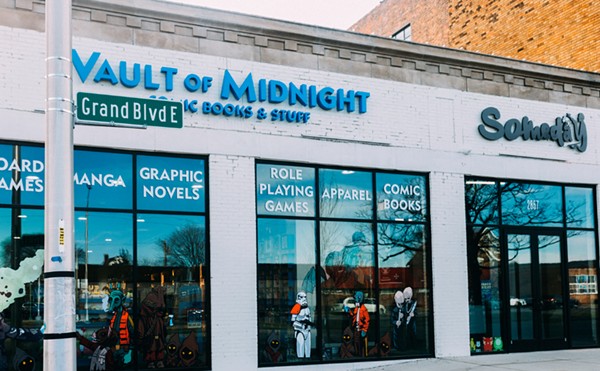Relationships are quicksand, especially when it’s your first trip into the unknown, marshy jungle. Blue Car is about such danger, the increasingly tense bond between high school student Megan Dinning (Agnes Bruckner) and her English teacher, Mr. Auster (David Strathairn), as the latter prepares the former for a national poetry contest. But that’s just the skin covering the film’s flesh.
Underneath the typical and known — the too-close relationship with the older man, the running away, the wake-up call tragedy — is a hauntingly accurate portrayal of one girl’s life, one that goes beyond the obvious. Yeah, she has an exasperating little sister, an absent father and a mother so busy working to keep them afloat that she has no idea when her children are sinking. There’s nothing special about that. What’s special is writer-director Karen Moncrieff’s uncomfortably accurate grasp of teenage rebellion, righteousness, uncertainty and self-doubt, and Bruckner’s startling performance as a teen that most of us once, in some small part, were.
Blue Car deals with the evolving relationship between Megan and Auster, each turn spurred on by activity buried in the secondary threads of the movie. But it’s those subplots that make Blue Car a work of importance, especially the emotional fuzz between Megan and her little sister, Lily, whose surprising midfilm exit is just one more way that this movie is special. Still young enough to wonder about how sperm fertilize eggs and to pronounce uterus as “your-eat-us,” but old enough to dip into every preadolescent neurosis from cutting to self-starving, Lily is, in so many ways, the catalyst for all that happens.
It’s Lily who makes Megan real, Lily who gives Megan the opportunity to be a teenager: shrugging off after-school babysitting responsibility by informing their mom, “you had her, you take care of her”; being irate and nasty with Lily for no reason, driving her off, then following her five minutes later to their shared bedroom to offer the classic teenaged silent apology in which the words “I’m sorry” never bubble to the surface. But the softened attitude, the silent offers to help clean a wound or sum an equation say what words never could.
There are evocative moments in Blue Car — more than enough, in fact — and they swath the inherent melodrama of the male teacher-female student relationship in a blanket so thick that even that, most of the time, seems OK, even when it reaches its obvious conclusion. Movies, too, are quicksand, and the more real, the more troubling they are, the more powerful their hold.
Predictability implies a set order; Blue Car takes that order and makes it random, the turning points coming so unexpectedly that the shock and pain are just as real for the viewer as they are for the character. And the small triumphs, though barely visible, are that much more glorious.
Showing exclusively at the Main Art Theatre (118 N. Main, Royal Oak). Call 248-542-0180.
Erin Podolsky writes about film for Metro Times. E-mail [email protected].





